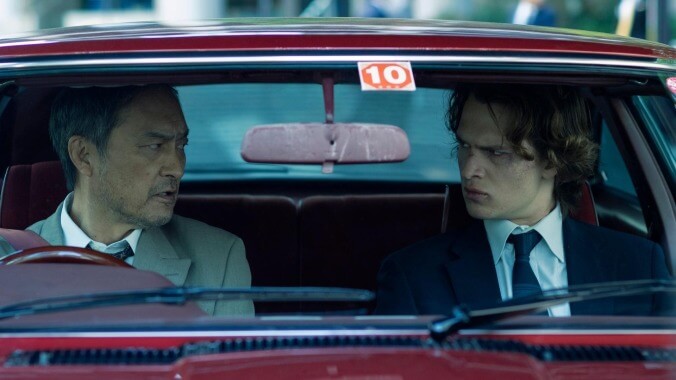Tokyo Vice season 2 review: Patience is power in the show's slow-burning sophomore run
Max's crime series returns with a more methodical, gripping, and atmospheric outing

Tokyo Vice’s breathless first season had the rushed energy of a rookie reporter. Like its lanky, floppy-haired star, the show barreled into Japan’s yakuza underground with abandon. Jake Adelstein (Ansel Elgort), the gaijin reporter for the Meicho, would solve this whole organized crime thing on his first day. Sam (Rachel Keller), another white American expat, would circumvent the mob and open her nightclub without interference. Sato (Show Kasamatsu) would prove himself an invaluable yakuza oyabun. Over eight episodes, though, each of these plans would fall to sabotage or tragedy. Ultimately, their failures would define the season, leaving them worse off at the end than they were at the beginning. Ending on a series of massive cliffhangers, season one acted like a show outrunning its cancellation. Tokyo Vice promised a massive show. If only it could have more time to build on it.
Season two, which kicks off February 8, makes quick work of those loose ends, racing through Polina’s murder, Sato’s stabbing, and the fate of Sam’s host club in the first half of its two-hour premiere. The second half of the premiere is where things get interesting. Following a time jump, Jake’s off the yakuza beat, Katagiri (Ken Watanabe, the personification of sleeping in a suit) is on desk duty, Sam’s host club is off and running, and Sato is out of the hospital. The first half of season two, which, cruelly, is all Max shared with critics, slows things down considerably, asking for patience from both the characters and the audience. That’s not an insult. This show should be methodical. Jake spent season one affirming Japanese stereotypes about Americans. He was petulant with superiors, reckless with his sources, and naive to believe he could undo centuries of organized crime with a couple of columns. Tokyo Vice returns with a more exacting outing, one willing to let characters find new twists on old rules, rejigger their thinking, and approach the world from a new perspective. This is a show preparing an audience for the long haul.
“Patience isn’t a weakness,” Katagiri tells Jake in an early episode. It’s a philosophy creator J.T. Rogers puts in every scene. Rogers’ plotting is more systematic than before, allowing the ripple effects of the finale to set a persistently tense atmosphere for the episodes to follow. The power vacuum left by Tozawa continues to alter the underground landscape, creating unlikely allyships and ending them just as quickly. However, the yakuza business and who is or is not running the crime syndicate simmer on the back burner as the characters’ personal lives deepen and expand. Tertiary characters are given moments to shine as their personal lives intersect with the broader narrative. Jake isn’t the Meicho’s only ambitious or interesting reporter, and his co-workers offer different pathways into Tokyo life.
Family looms over Tokyo Vice, but not through a cryptic series of tape-recorded diaries this time. Jake’s family is no longer a mystery box to be opened. The show is more transparent with its characters, abandoning these withholding teases. For example, Sato’s primary focus is keeping his computer-whiz baby brother, who catches the eye of this season’s big bad, Hayama (Yôsuke Kubozuka), a high-ranking but unpredictable Chihara, from falling into a life of crime. Kasamatsu continues to play Sato with steely reserve. Those glimmers of humanity heard through his Backstreet Boys fandom kept the character from becoming a yakuza terminator. Here, they shine brighter through his care for his brother and a new love interest’s young son.








































